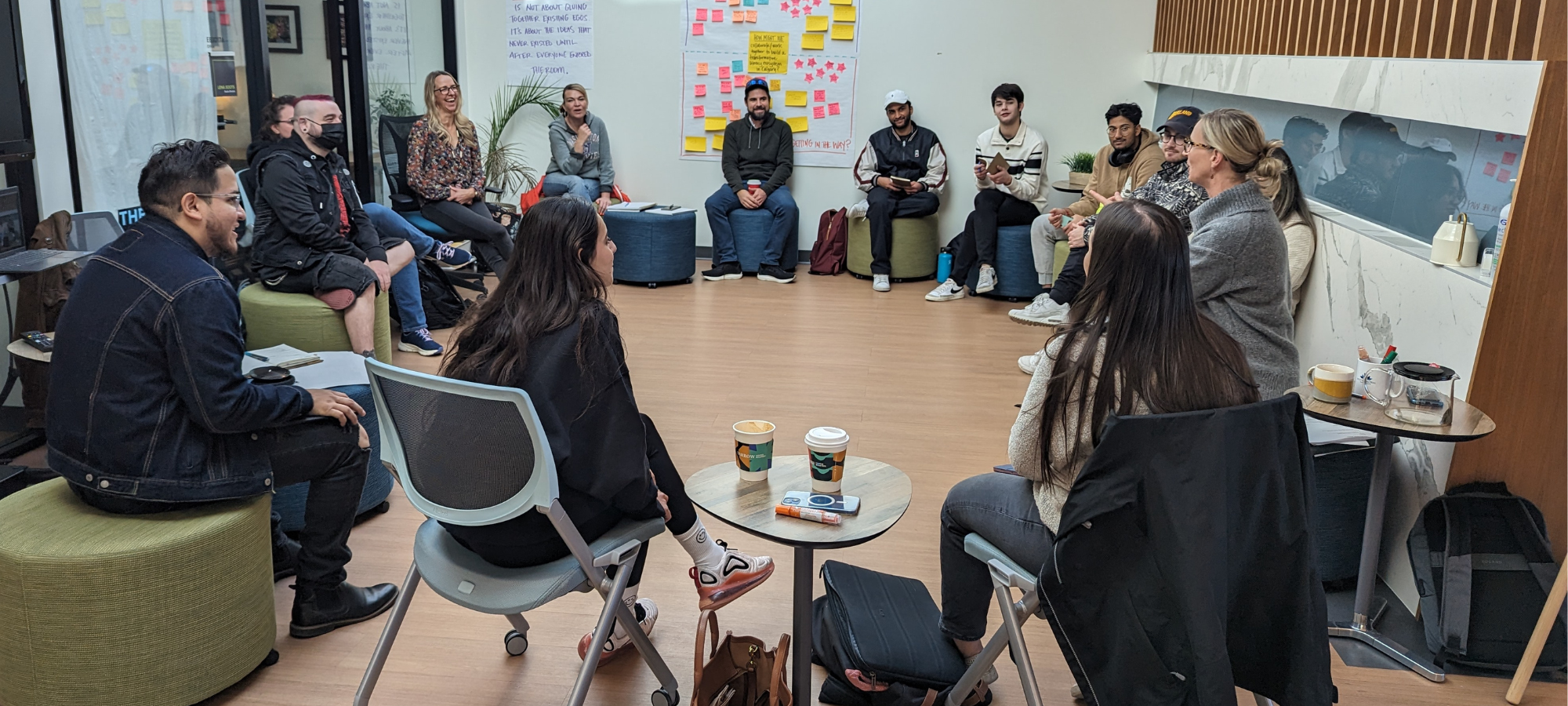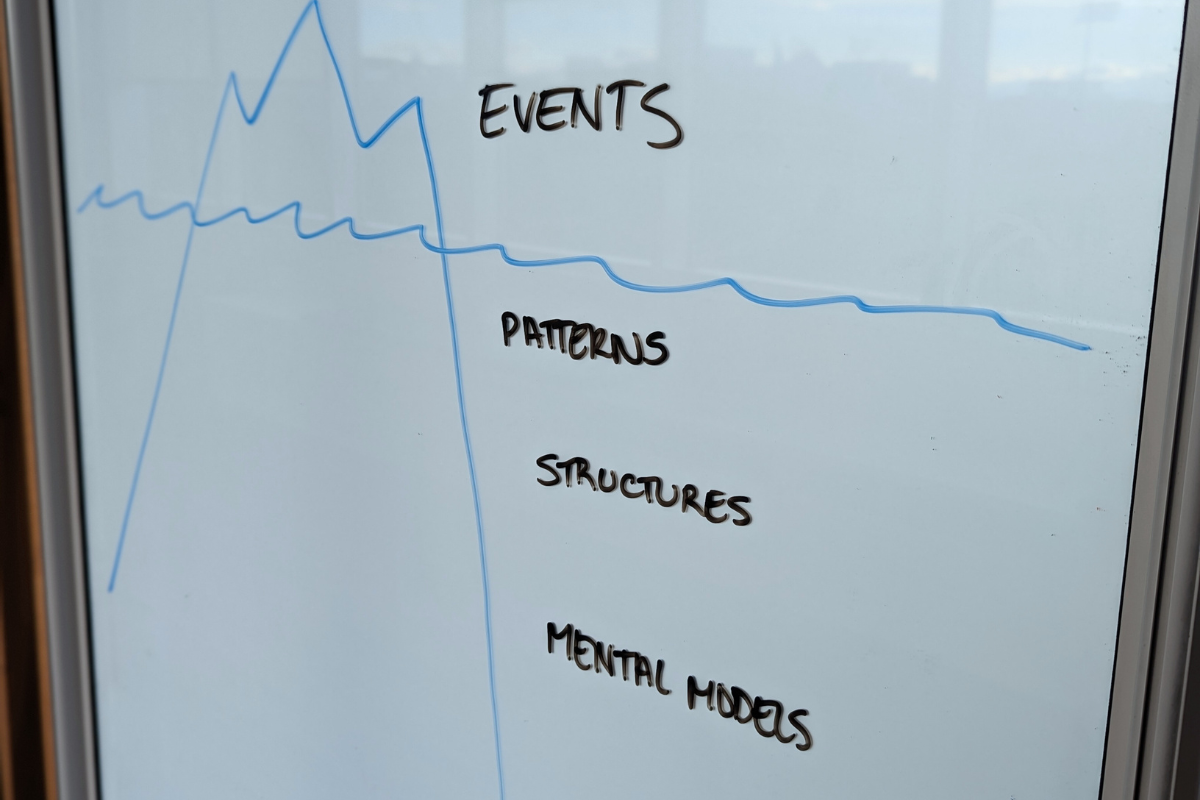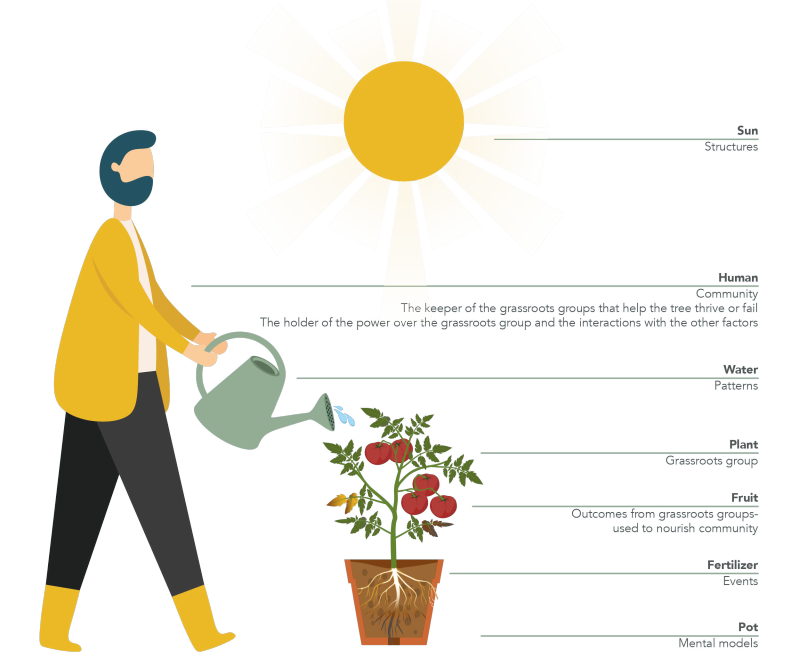Leaning into Systems Thinking: Catamount October Reflections
Posted November 14, 2023 - Cordelia Snowdon-Lawley
Exploring systems mapping and digging beneath the surface.

Image: Catamount Cohort Gathering
As the seasons transitioned from fall to winter, our Fellows started to explore systems mapping and thinking tools as they became more familiar with the wicked problems they are researching.
James Stauch, Director of the Institute for Community Prosperity, brought his experience creating and teaching systems thinking and shared insights into the why behind the tools and frameworks we use in the fellowship.
Those new to the realm of systems thinking may wonder why each of our students start with a “How might we” question when many forms of academic research start with testable hypotheses. Consider the examples below and what initial responses surface:
What is the solution to climate change?
Will rent caps stop the housing crisis?
Then consider how your responses change if the question shifted to a how might we question or challenge statement:
How might we respond to climate change?
How might we address the housing crisis?
Rather than a question that leads to a yes or no answer, the 'how might we' framing opens up possibilities and brings more people and perspectives into the conversation as there is no one answer. Starting with an open-ended question invites students, and anyone interested in complex problems, into a space of exploration instead of answering a true or false question.
“A challenge statement is a description of your problem in a way that you are able to solve for it. It speaks to the urgency of the problem, is a call-to-action for others to be involved and inspires hope for change.”
- MaRS Living Guide to Social Innovation Labs
Cellular and Molecular Biology student Chris Shaw is exploring the question “How might we turn online engagement into environmental/political/social action?” This broad how might we question provides the chance to gain an appreciation for the larger system and range of possible solutions, while also allowing them to bring their personal knowledge and experiences into their project.
Reflecting on their journey so far and excitement for the project, Shaw noted "As an autistic student with interests in science and philosophy, I have been fighting with systems my whole life. I am most excited to take topics I am passionate about and knowledge I’ve acquired in my degree, and apply them to a problem that is important to me and affects me directly.”
|
The Fellows also had their first experience trying out systems mapping tools including the Impact Gap Canvas and the Iceberg Model.
The Iceberg Model is helpful for anyone exploring a complex issue as it challenges us to consider the many layers of a systemic issue. Starting with the events ‘above the water’, you can draw connections to behavioral patterns and larger systemic structures, ultimately identifying the mental models that create the conditions we see on the surface. |
 |
An iceberg can be a powerful tool for exploring an issue, and it can also be customized to resonate across audiences. Megan Davidson, a Past Catamount Fellow and MRU Criminal Justice alumni, transposed this systems mapping tool from iceberg to flowerpot, using structural elements of caring for a plant to reflect the challenges and potentials of grassroots groups.

Our Catamount Fellows will spend November continuing to practice with systems mapping tools and are in the early days of planning their Community Conversations. We look forward to sharing the next phase of their journey!
Curious to learn more about systems thinking? Check out the webinar recording Introduction to Systems Thinking [Youtube Video]
For more insight in how to use these and other systems mapping tools, see the Student Guide to Mapping a System and our system-mapping competition Map The System
Stay tuned to our Happenings Page for updates about the fellowship, event invites, and exploration into their research findings! Missed our September Recap? Check out Kicking Off Our 2023-2024 Catamount Fellowship Journey!
"The systems-thinking lens allows us to reclaim our intuition about whole systems and hone our abilities to understand parts, see interconnections, ask 'what-if' questions about possible future behaviors, and be creative and courageous about system redesign."
- Donella Meadows, Thinking in Systems: A Primer, 2008


